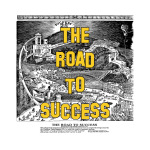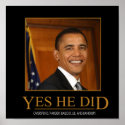
New Holocaust Movie Should Make Some Take Better Stock of MidEast Today

New Holocaust Movie Should Make People Take Stock of MidEast Today
For this recent movie-goer, RUN BOY RUN was emotionally-wrenching. Scene after scene almost made me one to escape myself – the theater that is.
From the scene when Jurek’s new dog and travel companion is shot by Nazi’s to Jurek’s severed hand that he loses only because the Nazi-sympthazing doctor refused to operate are emotionial enough, yet there are many more scenes I had to endure – scenes in which Jurek comes within inches of being caught, and then, in the flashback , having to watch his Dad give himself up to the Nazi’s so Jurek can RUN in the opposite direction, and only after excellent guidance and instructions from Dad.
Anyone with a compassionate heart would once again be reminded of the terrible atrocity of World War II. To think that this kind of stuff was happening only 70 years ago is hard to believe. But worse, to see this same sort of thing happening again today, a short 10 years
since 3,000 Americans were burned to death not in a Nazi concentration camp but a towering inferno called the World Trade Center at the hands of equally vicious religious extremes . How more and more people and politicians, especially Jewish ones, are quickly forgetting these recent events while criticizing Israel opposition to US dealings with Iran and other terrorist countries which threaten to wipe out Israel is rather unbelievable, we believe.
Film Review: ‘Run Boy Run’
Lauf Junge Lauf Run Boy Run (Variety.com)
FEBRUARY 25, 2014
Ronnie Scheib
Based on a bestseller that was itself based on a true story (the real-life protagonist appears under the end credits), “Run Boy Run” sticks faithfully,
albeit highly unimaginatively, to its source. For his Holocaust saga of an 8-year-old Jewish child cast adrift in Nazi-occupied Poland, vet German helmer
Pepe Danquart relies on the pathos inherent in the situation to carry his film emotionally as the kid’s struggle for survival increasingly reflects the
Jewish people’s struggle to maintain their identity in the face of genocide. A natural for Jewish viewers and older arthouse-goers, “Run Boy Run” feels
too old-fashioned and by-the-numbers for a wider audience.
Srulik (played by twins Andrzej and Kamil Tkacz) escapes the roundup in his hometown to hide out in the woods. He hooks up briefly with a small bunch of
Jewish kids also on the run, who have banded together to forage off the land, roasting stolen chickens around a fire and keeping morale alive by swapping
displays of bravado. But after an unsuccessful chicken-snatching raid results in the capture of some kids and the scattering of others, Srulik once again
finds himself alone as bitter winter and the Gestapo close in.
Calling himself “Jurek” to disguise his Jewishness, he seeks temporary shelter or employment at a succession of farmhouses, encountering slammed doors
and an occasional odd job until he arrives at the home of Magda (Elisabeth Duda, excellent), wife and mother of partisans, who teaches him everything
he needs to pass as Catholic. Magda is the closest the film ever comes to an authentic character. Even Jurek, in virtually every frame of the film, is
defined almost solely by his will to live, functioning mainly as a witness to events with little personal coloration or interiority.
By the same token, the people whom Jurek encounters on his desperate, years-long wanderings function like a running tally of relative Polish
innocence or guilt in the Holocaust, rather than distinct characters. Thus, when a farm accident costs Jurek his arm, a “bad” doctor refuses
to operate because the boy is a Jew, while another, “good” doctor tends him and helps him to escape.
Danquart’s anecdotal, checklist-style approach furnishes fodder for the simplest kind of identification with his hero, and the sheer presentation
of these terrible grievances may prove sufficiently empathy-inducing for the target audience. Changes of tone, although possible, are rarely pursued;
in the film’s one foray into humor, the handicapped Jurek delights in inventing more and more outrageously heroic stories about how he lost his arm,
but this entertaining, tale-spinning talent disappears without a trace. If the Tkacz twins’ thesping never hits a wrong note, it rarely provides access
to any process of consciousness. Even the character’s ultimate choice between assimilation and the assumption of his Jewish heritage reads merely as a
choice between signposts.
For this recent movie-goer, RUN BOY RUN was emotionally-wrenching. Scene after scene almost made me one to escape myself – the theater that is.
From the scene when Jurek’s new dog and travel companion is shot by Nazi’s to Jurek’s severed hand that he loses only because the Nazi-sympthazing
doctor refused to operate are emotionial enough, yet there are many more scenes I had to endure – scenes in which Jurek comes within inches of
being caught, and then, in the flashback , having to watch his Dad give himself up to the Nazi’s so Jurek can RUN in the opposite direction, and
only after excellent guidance and instructions from Dad.
Anyone with a compassionate heart would once again be reminded of the terrible atrocity of World War II. To think that this kind of stuff was happening only 70 years ago is hard to believe. But worse, to see this same sort of thing happening again today, a short 10 years
since 3,000 Americans were burned to death not in a Nazi concentration camp but a towering inferno called the World Trade Center at the hands of equally vicious religious extremes . How more and more people and politicians, especially Jewish ones, are quickly forgetting these recent events
while criticizing Israel’s opposition to US dealings with Iran and other terrorist countries which threaten to wipe out Israel is rather unbelievable,
we believe.
OTHER VIDEO SUGGESTIONS – BEST CABLE SHOWS OF THE LAST DECADE























